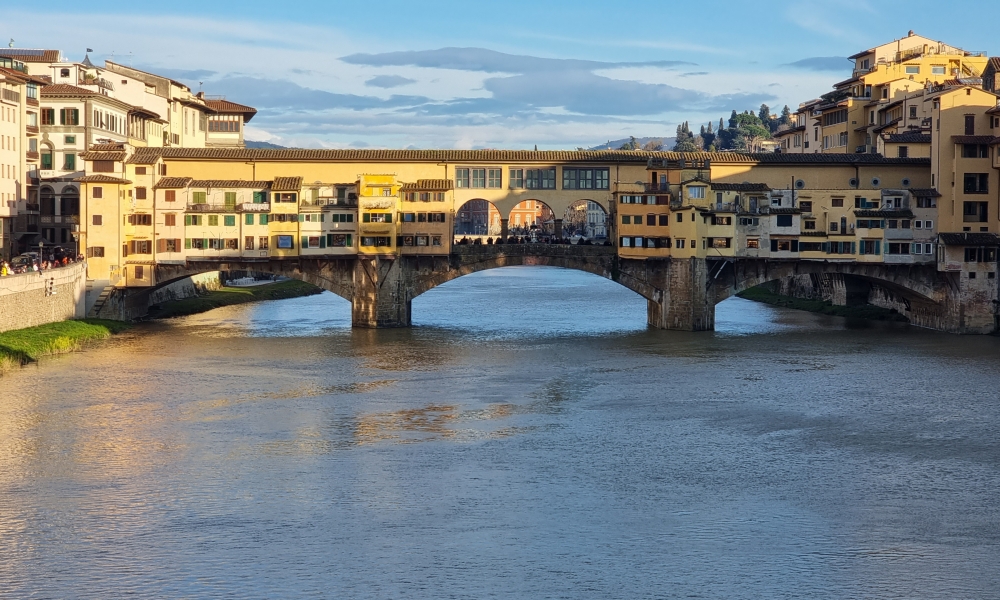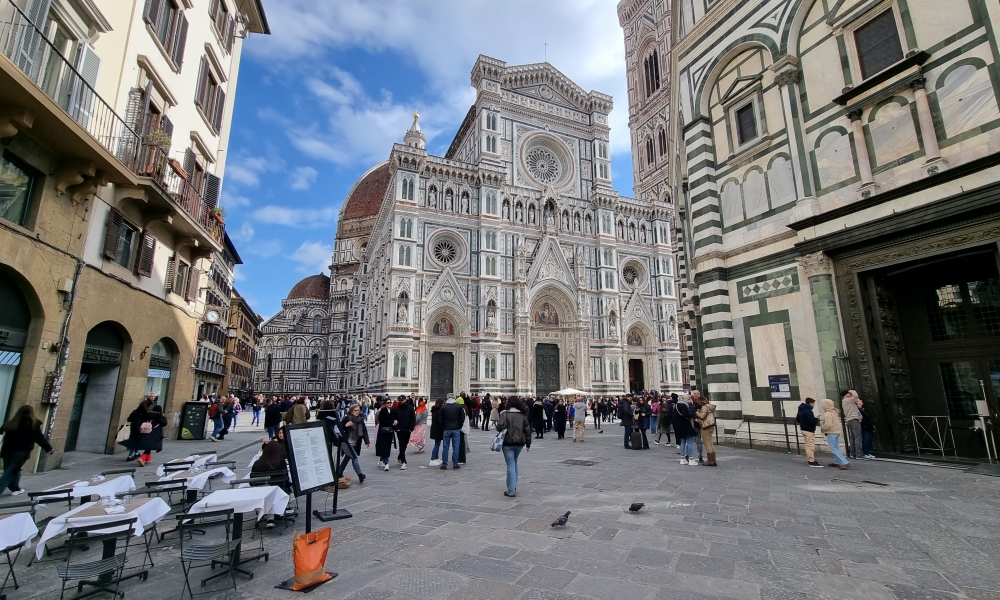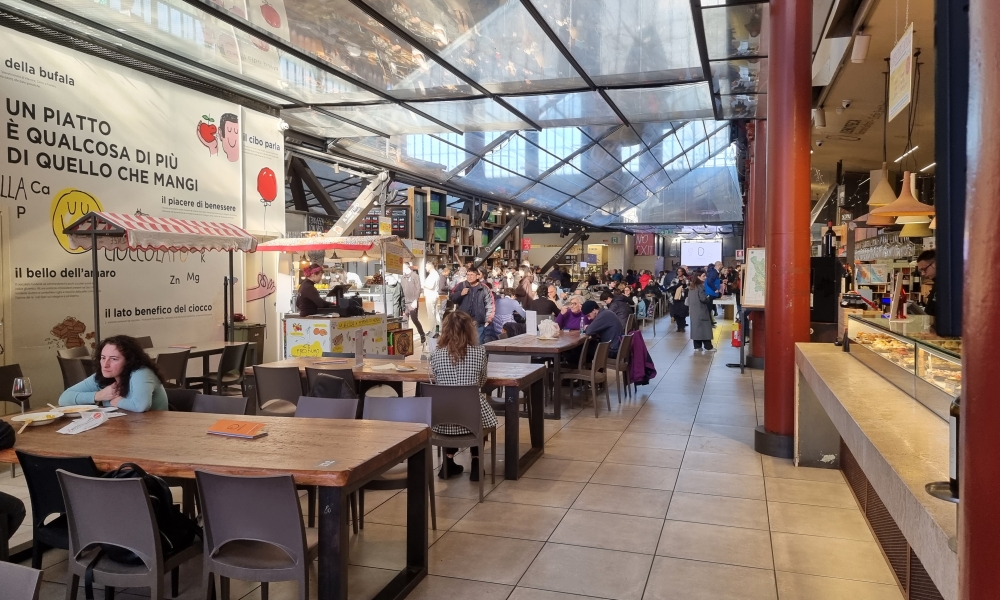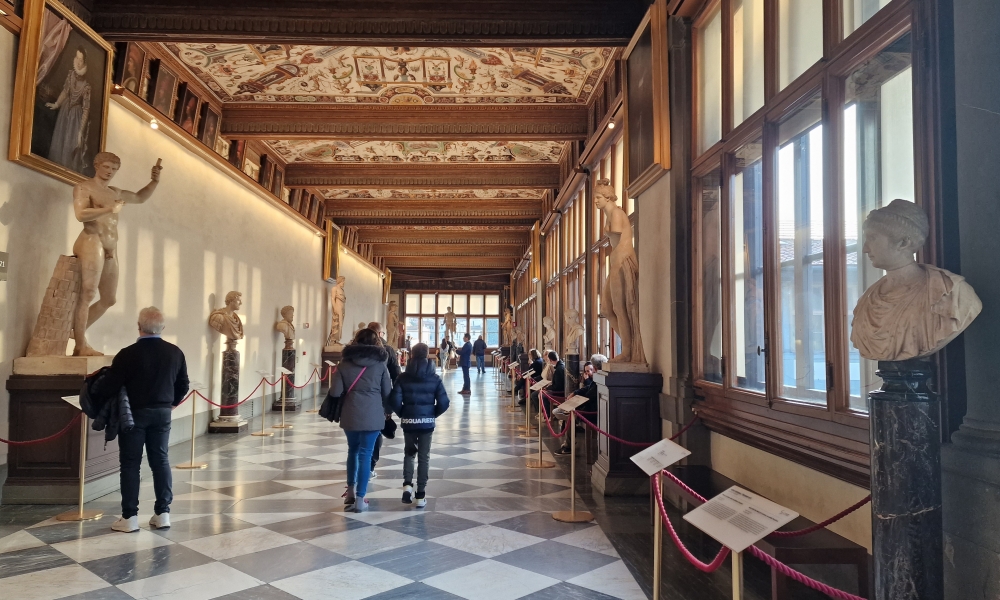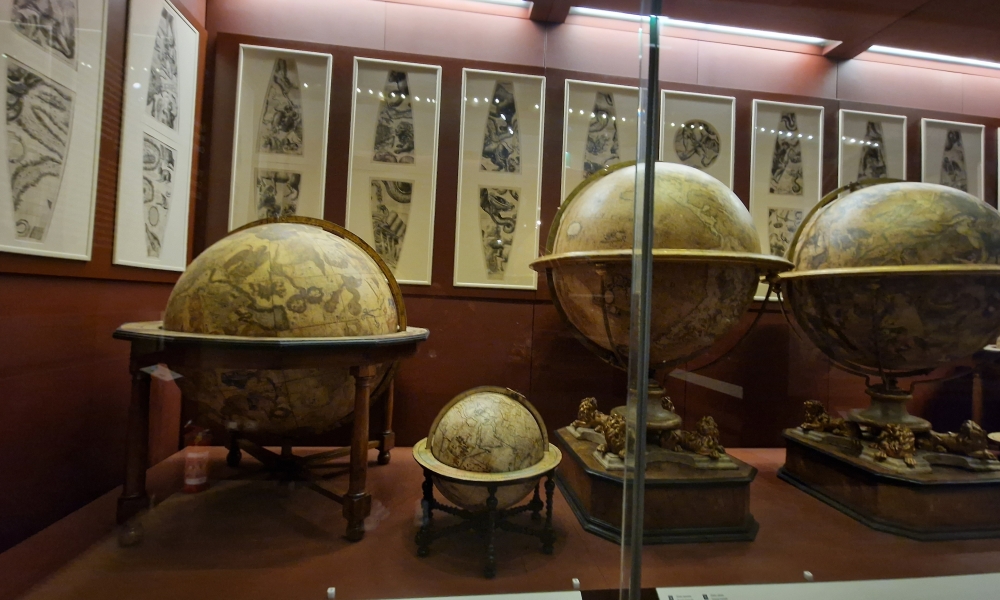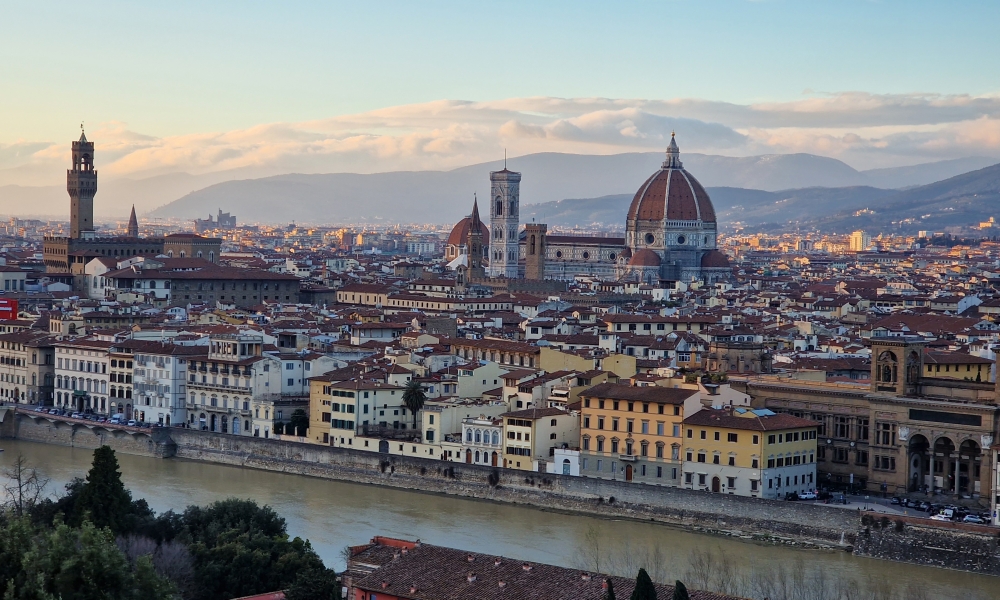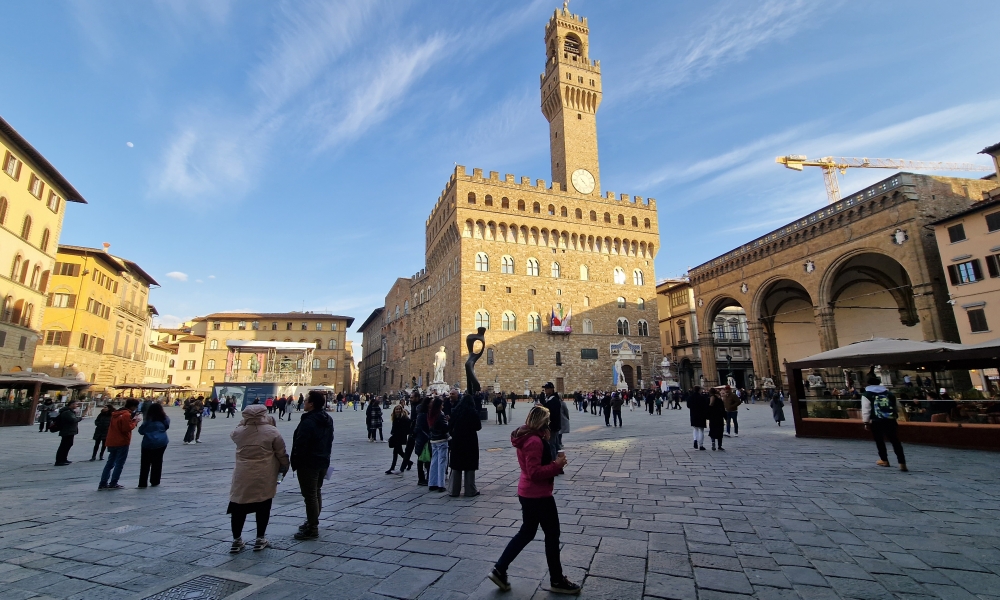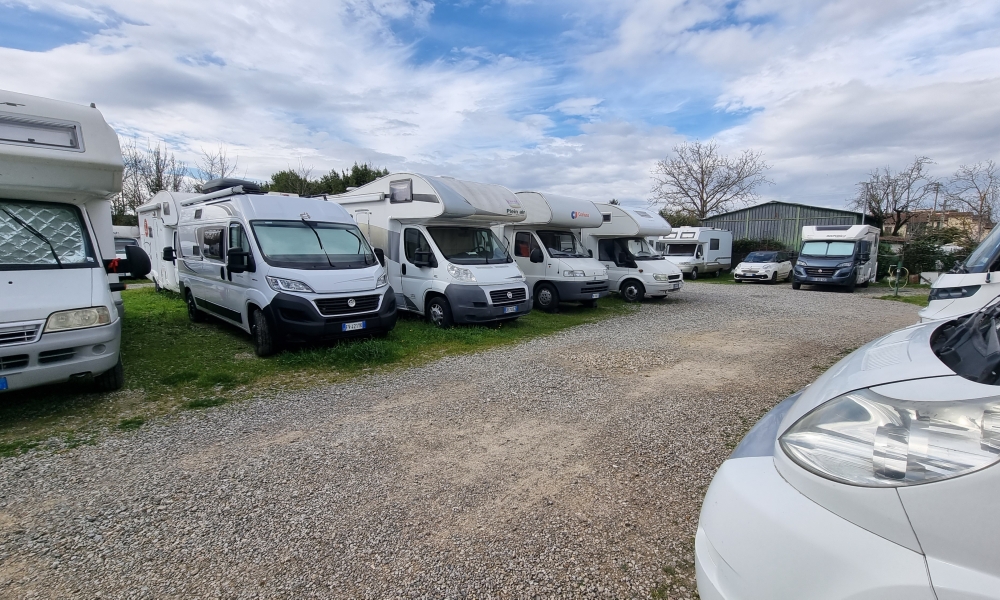Visiting Florence / Firenze, Tuscany
Recommended Season: All year
Starting Country: Italy
Recommended time: 3 days
Florence, or Firenze, is the capital of the Italian region of Tuscany and is one of the most visited cities in Italy. Built on the banks of the Arno River, Florence is full of places of historical and cultural interest, attracting millions of tourists annually, Florence can be visited at any time of the year. In Florence you will find the best and most famous museums in the world, a very well preserved historic center. Below are some of the most important places to visit.
Florence's history is very rich and has profoundly influenced the city's culture and economy. Founded in the 1st century BC. By the Romans as a military colony, Florence grew in importance during the Middle Ages as an independent and prosperous city-state. During the Italian Renaissance, the city became an important cultural and artistic center, attracting some of the greatest artists and thinkers of the time. The Medici family, which ruled the city for much of this period, was an important patron of the arts, science and culture, funding artists such as Michelangelo, Leonardo da Vinci and Botticelli.
Florentine culture is therefore heavily influenced by Renaissance art and architecture. The city has a wealth of museums, art galleries and historic monuments, including the Uffizi Gallery, which houses one of the largest collections of Renaissance art in the world, and the Cathedral of Santa Maria del Fiore, which is one of the most iconic churches in the city. Italy. Florence's cuisine is also highly prized, with a variety of traditional dishes such as bistecca alla fiorentina, a grilled steak typical of the Tuscan region, and pappardelle al ragù, a pasta with meat sauce.
In terms of economy, Florence is a very diverse city, with important sectors in areas such as fashion, jewelry, tourism, financial services and food. The city is famous for its fashion industry, with many famous brands such as Gucci, Salvatore Ferragamo and Roberto Cavalli having been founded there. In addition, the city is a popular tourist destination, with millions of visitors from all over the world coming every year to experience the city's rich culture and history. The city is also home to many financial services companies, including several of Italy's largest insurance companies.
Overall, Florence's history, culture and economy are closely linked and influence each other. The city is an important center of art and culture, as well as a popular tourist destination and economic hub for the Tuscan region and beyond.
Florence video:

Florence's history is very rich and has profoundly influenced the city's culture and economy. Founded in the 1st century BC. By the Romans as a military colony, Florence grew in importance during the Middle Ages as an independent and prosperous city-state. During the Italian Renaissance, the city became an important cultural and artistic center, attracting some of the greatest artists and thinkers of the time. The Medici family, which ruled the city for much of this period, was an important patron of the arts, science and culture, funding artists such as Michelangelo, Leonardo da Vinci and Botticelli.
Florentine culture is therefore heavily influenced by Renaissance art and architecture. The city has a wealth of museums, art galleries and historic monuments, including the Uffizi Gallery, which houses one of the largest collections of Renaissance art in the world, and the Cathedral of Santa Maria del Fiore, which is one of the most iconic churches in the city. Italy. Florence's cuisine is also highly prized, with a variety of traditional dishes such as bistecca alla fiorentina, a grilled steak typical of the Tuscan region, and pappardelle al ragù, a pasta with meat sauce.
In terms of economy, Florence is a very diverse city, with important sectors in areas such as fashion, jewelry, tourism, financial services and food. The city is famous for its fashion industry, with many famous brands such as Gucci, Salvatore Ferragamo and Roberto Cavalli having been founded there. In addition, the city is a popular tourist destination, with millions of visitors from all over the world coming every year to experience the city's rich culture and history. The city is also home to many financial services companies, including several of Italy's largest insurance companies.
Overall, Florence's history, culture and economy are closely linked and influence each other. The city is an important center of art and culture, as well as a popular tourist destination and economic hub for the Tuscan region and beyond.
Florence video:

The trip
Ponte Vecchio
Lat: 43.767956 - Lon: 11.253154
N: 43° 46' 4.6415999999999 " E: 11° 15' 11.3544"
N: 43° 46' 4.6415999999999 " E: 11° 15' 11.3544"
The Ponte Vecchio is a medieval bridge in Florence, Italy, spanning the Arno River. It is one of the most popular tourist attractions in Florence and is known for its jewelry and handicraft shops that stretch along the bridge.
The bridge was originally built of wood in 996, but was destroyed by a flood in 1117. It was rebuilt in stone, with shops built along both sides of the bridge. These stores were originally occupied by butchers, but in the 16th century, the Grand Duke of Tuscany ordered the stores to be occupied by jewelers and goldsmiths, and since then, the bridge has been known for its jewelry and crafts.
Ponte Vecchio is also known for its architecture, with three stone arches spanning the river. The central part of the bridge is higher than the others, with a small window offering a view of the Arno River.
During World War II, the Ponte Vecchio was the only bridge in Florence that was not destroyed by retreating German forces, and is considered a national treasure. Currently, the bridge is protected and preserved as a historical and cultural heritage.
Ponte Vecchio is a popular attraction for tourists and locals alike, with an array of shops selling jewellery, art and crafts. Many artists and photographers are also drawn to the bridge as it offers beautiful views of the river and city.
In summary, the Ponte Vecchio is a historic bridge in Florence, Italy, known for its jewelry and craft shops and for its remarkable architecture. It is a popular tourist attraction and an important cultural symbol of Florence.
The bridge was originally built of wood in 996, but was destroyed by a flood in 1117. It was rebuilt in stone, with shops built along both sides of the bridge. These stores were originally occupied by butchers, but in the 16th century, the Grand Duke of Tuscany ordered the stores to be occupied by jewelers and goldsmiths, and since then, the bridge has been known for its jewelry and crafts.
Ponte Vecchio is also known for its architecture, with three stone arches spanning the river. The central part of the bridge is higher than the others, with a small window offering a view of the Arno River.
During World War II, the Ponte Vecchio was the only bridge in Florence that was not destroyed by retreating German forces, and is considered a national treasure. Currently, the bridge is protected and preserved as a historical and cultural heritage.
Ponte Vecchio is a popular attraction for tourists and locals alike, with an array of shops selling jewellery, art and crafts. Many artists and photographers are also drawn to the bridge as it offers beautiful views of the river and city.
In summary, the Ponte Vecchio is a historic bridge in Florence, Italy, known for its jewelry and craft shops and for its remarkable architecture. It is a popular tourist attraction and an important cultural symbol of Florence.
Florence Cathedral or Cathedral of Santa Maria del Fiore
Lat: 43.772804 - Lon: 11.256411
N: 43° 46' 22.0944 " E: 11° 15' 23.0796"
N: 43° 46' 22.0944 " E: 11° 15' 23.0796"
The Cathedral of Santa Maria del Fiore, or simply Duomo of Florence, is one of the most famous cathedrals in the world, located in the heart of Florence, Italy. Construction on the cathedral began in 1296 and took over 140 years to complete, opening in 1436.
The cathedral is one of the most outstanding examples of Gothic architecture in Italy, with its white, green and pink marble facade and imposing red brick dome, designed by Filippo Brunelleschi. The dome is considered one of the greatest architectural achievements of the Renaissance, with a diameter of 45 meters and a height of over 100 meters.
The interior of the cathedral is equally impressive, with frescoes and stained glass windows dating from the 14th and 15th centuries, as well as statues and marble altars carved by renowned artists such as Donatello and Luca della Robbia.
One of the cathedral's most popular attractions is the climb to the dome, which offers breathtaking views of Florence and the surrounding valley. Climbing up requires a hike of 463 steep steps, but the panoramic view from the top is definitely worth the effort.
Another notable attraction of the cathedral is the Baptistery of San Giovanni, a marble building in front of the cathedral, which houses massive bronze doors that are considered masterpieces of Renaissance art. The interior of the Baptistery is decorated with frescoes and mosaics dating from the 13th and 14th centuries.
In addition, the cathedral also houses a museum that contains treasures from the cathedral such as tapestries, sculptures and ancient manuscripts.
In short, the Cathedral of Santa Maria del Fiore is one of Florence's most notable attractions and one of the most outstanding examples of Gothic architecture in Italy. Its dome, frescoes and stained glass are some of the most notable features, as well as offering breathtaking views of Florence from the top.
The cathedral is one of the most outstanding examples of Gothic architecture in Italy, with its white, green and pink marble facade and imposing red brick dome, designed by Filippo Brunelleschi. The dome is considered one of the greatest architectural achievements of the Renaissance, with a diameter of 45 meters and a height of over 100 meters.
The interior of the cathedral is equally impressive, with frescoes and stained glass windows dating from the 14th and 15th centuries, as well as statues and marble altars carved by renowned artists such as Donatello and Luca della Robbia.
One of the cathedral's most popular attractions is the climb to the dome, which offers breathtaking views of Florence and the surrounding valley. Climbing up requires a hike of 463 steep steps, but the panoramic view from the top is definitely worth the effort.
Another notable attraction of the cathedral is the Baptistery of San Giovanni, a marble building in front of the cathedral, which houses massive bronze doors that are considered masterpieces of Renaissance art. The interior of the Baptistery is decorated with frescoes and mosaics dating from the 13th and 14th centuries.
In addition, the cathedral also houses a museum that contains treasures from the cathedral such as tapestries, sculptures and ancient manuscripts.
In short, the Cathedral of Santa Maria del Fiore is one of Florence's most notable attractions and one of the most outstanding examples of Gothic architecture in Italy. Its dome, frescoes and stained glass are some of the most notable features, as well as offering breathtaking views of Florence from the top.
Florence Central Market and San Lorenzo Market
Lat: 43.776667 - Lon: 11.253174
N: 43° 46' 36.0012 " E: 11° 15' 11.4264"
N: 43° 46' 36.0012 " E: 11° 15' 11.4264"
Florence, Italy is known for its vibrant and lively markets, which offer a wide variety of local products, from food and wine to handicrafts and clothing. Two of the most famous markets are the Mercado Central and Mercado de San Lorenzo.
The Central Market, also known as Mercato Centrale, is a covered market located in the heart of Florence. It opened in 1874 and since then has been a popular destination for tourists and locals looking for fresh, authentic Tuscan produce.
The market is home to more than 300 vendors, offering a wide selection of fruits, vegetables, meats, fish, cheeses, wines and oils, among other food products. There is also a section dedicated to non-food products such as books, leather goods, clothing and souvenirs.
Inside the Central Market, there is a modern and newly renovated space known as "Mercato Centrale Firenze", which offers a unique dining experience. Spanning more than 2,500 square meters, the space features a variety of food and drink stalls, including vegetarian and vegan options, as well as a wine bar and live cooking area.
The Mercado de San Lorenzo, in turn, is an open-air market located next to the famous church of the same name. Founded in the 17th century, the market is known for its leather stalls selling handcrafted bags, wallets, belts and other leather crafts.
In the San Lorenzo market, you can also find stalls selling food products such as cheese, olives, dried fruit and other Italian specialties. There is also a section dedicated to souvenirs and souvenirs from the city.
In addition, the area around the San Lorenzo market is full of craft shops, restaurants and bars, making it a popular destination for tourists looking to explore Florence's culture and history.
In summary, both the Central Market and the San Lorenzo Market are unmissable destinations for anyone visiting Florence. With their wide selection of local products and handicrafts, they offer an authentic and lively experience of Tuscan culture and cuisine.
The Central Market, also known as Mercato Centrale, is a covered market located in the heart of Florence. It opened in 1874 and since then has been a popular destination for tourists and locals looking for fresh, authentic Tuscan produce.
The market is home to more than 300 vendors, offering a wide selection of fruits, vegetables, meats, fish, cheeses, wines and oils, among other food products. There is also a section dedicated to non-food products such as books, leather goods, clothing and souvenirs.
Inside the Central Market, there is a modern and newly renovated space known as "Mercato Centrale Firenze", which offers a unique dining experience. Spanning more than 2,500 square meters, the space features a variety of food and drink stalls, including vegetarian and vegan options, as well as a wine bar and live cooking area.
The Mercado de San Lorenzo, in turn, is an open-air market located next to the famous church of the same name. Founded in the 17th century, the market is known for its leather stalls selling handcrafted bags, wallets, belts and other leather crafts.
In the San Lorenzo market, you can also find stalls selling food products such as cheese, olives, dried fruit and other Italian specialties. There is also a section dedicated to souvenirs and souvenirs from the city.
In addition, the area around the San Lorenzo market is full of craft shops, restaurants and bars, making it a popular destination for tourists looking to explore Florence's culture and history.
In summary, both the Central Market and the San Lorenzo Market are unmissable destinations for anyone visiting Florence. With their wide selection of local products and handicrafts, they offer an authentic and lively experience of Tuscan culture and cuisine.
Uffizi Gallery
Lat: 43.767786 - Lon: 11.255311
N: 43° 46' 4.0295999999998 " E: 11° 15' 19.1196"
N: 43° 46' 4.0295999999998 " E: 11° 15' 19.1196"
The Uffizi Gallery is one of the most famous and important museums in Italy and the world. Located in Florence, in the Tuscany region, the gallery is known for its vast collection of Renaissance and Baroque art, including works by masters such as Leonardo da Vinci, Michelangelo, Botticelli, Caravaggio and Raphael.
The gallery was founded in 1581 by Francesco I de' Medici, the Grand Duke of Tuscany, who commissioned the construction of a building to house the various administrations and courts of the Florentine government, known as "uffizi" in Italian. The architect in charge of the project was Giorgio Vasari, who designed a two-story building that would house the administration on the ground floor and the exhibition halls on the upper floor.
In the 18th century, the gallery was expanded by the architect Bernardo Buontalenti, who added a new wing to the main building. During the 19th century, the gallery was enriched with the acquisition of new works of art, including a collection of ancient sculptures and pieces of Egyptian art.
In 1865, the Uffizi Gallery was opened to the public as a museum. Since then, the gallery's collection has grown steadily, thanks to donations and acquisitions. In 2019, the gallery welcomed over 4.4 million visitors, making it one of the most visited museums in the world.
Today, the Uffizi Gallery houses one of the largest collections of Renaissance and Baroque art in the world, with over 100,000 works in its collections, although only a small fraction are on display at any given time. The exhibition halls include works of art in various mediums, including paintings, sculptures, drawings and prints.
Some of the most famous works in the gallery include "The Birth of Venus" by Sandro Botticelli, "La Primavera" also by Botticelli, "The Annunciation" by Leonardo da Vinci, "The Adoration of the Magi" by Filippo Lippi and "Madonna and Child and Saint John the Baptist" by Michelangelo. The Uffizi Gallery remains a popular destination for art lovers from around the world and an important research and study center for Italian Renaissance and Baroque art.
Entrance: 25€ P/Person
The gallery was founded in 1581 by Francesco I de' Medici, the Grand Duke of Tuscany, who commissioned the construction of a building to house the various administrations and courts of the Florentine government, known as "uffizi" in Italian. The architect in charge of the project was Giorgio Vasari, who designed a two-story building that would house the administration on the ground floor and the exhibition halls on the upper floor.
In the 18th century, the gallery was expanded by the architect Bernardo Buontalenti, who added a new wing to the main building. During the 19th century, the gallery was enriched with the acquisition of new works of art, including a collection of ancient sculptures and pieces of Egyptian art.
In 1865, the Uffizi Gallery was opened to the public as a museum. Since then, the gallery's collection has grown steadily, thanks to donations and acquisitions. In 2019, the gallery welcomed over 4.4 million visitors, making it one of the most visited museums in the world.
Today, the Uffizi Gallery houses one of the largest collections of Renaissance and Baroque art in the world, with over 100,000 works in its collections, although only a small fraction are on display at any given time. The exhibition halls include works of art in various mediums, including paintings, sculptures, drawings and prints.
Some of the most famous works in the gallery include "The Birth of Venus" by Sandro Botticelli, "La Primavera" also by Botticelli, "The Annunciation" by Leonardo da Vinci, "The Adoration of the Magi" by Filippo Lippi and "Madonna and Child and Saint John the Baptist" by Michelangelo. The Uffizi Gallery remains a popular destination for art lovers from around the world and an important research and study center for Italian Renaissance and Baroque art.
Entrance: 25€ P/Person
Galileo Museum
Lat: 43.767712 - Lon: 11.255935
N: 43° 46' 3.7631999999999 " E: 11° 15' 21.366"
N: 43° 46' 3.7631999999999 " E: 11° 15' 21.366"
The Museo Galileo, formerly known as the Institute and Museum of the History of Science, is a museum located in Florence, Italy, dedicated to the history of science and technology. The museum houses a large collection of ancient scientific instruments, including telescopes, microscopes, clocks, astrolabes and other scientific equipment.
The museum was founded in 1927 by a group of university professors and scientists led by the physicist and historian of science, Antonio Favaro. The museum's aim was to preserve Italy's rich scientific heritage and to promote the study of the history of science.
The Museo Galileo has an extensive collection of scientific instruments, many of which have been used by leading scientists throughout history. Highlights of the collection include Galileo Galilei's telescope, a 16th-century astrolabe, Leeuwenhoek's first microscope and Roentgen's first X-ray apparatus.
In addition to scientific instruments, the museum also houses a large collection of rare books and manuscripts relating to the history of science. There is an on-site library with over 150,000 volumes, including works by Galileo, Leonardo da Vinci and Isaac Newton.
The museum is an important center for research and scientific studies. It offers courses, seminars and conferences on various topics related to science and technology. There are also educational programs and activities for children and young people, including hands-on workshops to learn about science and technology.
The building that houses the Museo Galileo is a work of art in itself, with 17th-century frescoes and stucco decorations. The building was originally built as a convent in 1257 and was transformed into a palace in the 15th century. Since then, it has undergone several renovations and renovations to become the museum it is today.
In summary, the Museo Galileo is a fascinating and educational museum, offering a unique insight into the history of science and technology. With its collection of ancient scientific instruments and its rare book library, it is an unmissable destination for those interested in Italian science, history and culture.
The museum was founded in 1927 by a group of university professors and scientists led by the physicist and historian of science, Antonio Favaro. The museum's aim was to preserve Italy's rich scientific heritage and to promote the study of the history of science.
The Museo Galileo has an extensive collection of scientific instruments, many of which have been used by leading scientists throughout history. Highlights of the collection include Galileo Galilei's telescope, a 16th-century astrolabe, Leeuwenhoek's first microscope and Roentgen's first X-ray apparatus.
In addition to scientific instruments, the museum also houses a large collection of rare books and manuscripts relating to the history of science. There is an on-site library with over 150,000 volumes, including works by Galileo, Leonardo da Vinci and Isaac Newton.
The museum is an important center for research and scientific studies. It offers courses, seminars and conferences on various topics related to science and technology. There are also educational programs and activities for children and young people, including hands-on workshops to learn about science and technology.
The building that houses the Museo Galileo is a work of art in itself, with 17th-century frescoes and stucco decorations. The building was originally built as a convent in 1257 and was transformed into a palace in the 15th century. Since then, it has undergone several renovations and renovations to become the museum it is today.
In summary, the Museo Galileo is a fascinating and educational museum, offering a unique insight into the history of science and technology. With its collection of ancient scientific instruments and its rare book library, it is an unmissable destination for those interested in Italian science, history and culture.
Michelangelo square
Lat: 43.762943 - Lon: 11.265020
N: 43° 45' 46.5948 " E: 11° 15' 54.072"
N: 43° 45' 46.5948 " E: 11° 15' 54.072"
Piazza Michelangelo is a famous square in Florence, Italy, which offers an incredible panoramic view of the city. Located on the hill of San Miniato al Monte, south of the historic center of Florence, the square was built in honor of the famous Renaissance artist Michelangelo.
The square was built in 1869 by the architect Giuseppe Poggi, as part of a project to beautify Florence. The idea was to create a green space with a breathtaking view of the city, which could be enjoyed by tourists and locals alike.
In the center of the square is a replica of Michelangelo's famous sculpture of David. The sculpture is a tribute to the artist, who was born in Florence and left a significant legacy in the city.
The view from Piazza Michelangelo is breathtaking. From the square, you can see the city of Florence in its entirety, with the main sights highlighted, including the Duomo, Ponte Vecchio and Palazzo Vecchio. The sunset seen from Piazza Michelangelo is particularly impressive, and many visitors come to the square to enjoy this moment.
Piazza Michelangelo is a popular spot for tourists and locals alike, especially in the summer months when it's common to see groups of people sitting on the grass, enjoying a picnic and taking in the view. There's also a cafe on the square serving drinks and snacks, and a craft market nearby where visitors can pick up local souvenirs.
Although the climb to Piazza Michelangelo can be a little strenuous, especially on a hot summer day, the breathtaking views of the city and the peaceful, relaxing atmosphere of the square make the visit well worth it. For those who don't want to walk to the square, there are tourist buses that take you up the hill.
In summary, Piazza Michelangelo is a must-see spot in Florence, with a breathtaking view of the city and a tribute to the famous artist Michelangelo. If you are visiting the city, don't miss the opportunity to visit this iconic square.
The square was built in 1869 by the architect Giuseppe Poggi, as part of a project to beautify Florence. The idea was to create a green space with a breathtaking view of the city, which could be enjoyed by tourists and locals alike.
In the center of the square is a replica of Michelangelo's famous sculpture of David. The sculpture is a tribute to the artist, who was born in Florence and left a significant legacy in the city.
The view from Piazza Michelangelo is breathtaking. From the square, you can see the city of Florence in its entirety, with the main sights highlighted, including the Duomo, Ponte Vecchio and Palazzo Vecchio. The sunset seen from Piazza Michelangelo is particularly impressive, and many visitors come to the square to enjoy this moment.
Piazza Michelangelo is a popular spot for tourists and locals alike, especially in the summer months when it's common to see groups of people sitting on the grass, enjoying a picnic and taking in the view. There's also a cafe on the square serving drinks and snacks, and a craft market nearby where visitors can pick up local souvenirs.
Although the climb to Piazza Michelangelo can be a little strenuous, especially on a hot summer day, the breathtaking views of the city and the peaceful, relaxing atmosphere of the square make the visit well worth it. For those who don't want to walk to the square, there are tourist buses that take you up the hill.
In summary, Piazza Michelangelo is a must-see spot in Florence, with a breathtaking view of the city and a tribute to the famous artist Michelangelo. If you are visiting the city, don't miss the opportunity to visit this iconic square.
Piazza della Signoria
Lat: 43.769614 - Lon: 11.255697
N: 43° 46' 10.6104 " E: 11° 15' 20.5092"
N: 43° 46' 10.6104 " E: 11° 15' 20.5092"
Piazza della Signoria has been the political center of the city since the Middle Ages. The square is surrounded by important government buildings and has been the site of many historic events, including public demonstrations and trials.
In the center of the square is the Fountain of Neptune, a fountain with a statue of the Roman god of the sea and smaller fountains around it. The statue was sculpted by Bartolomeo Ammannati and is one of the square's most famous attractions.
Another notable attraction in Piazza della Signoria is the Loggia dei Lanzi, an open arched gallery that houses a collection of important sculptures, including the famous statue of Perseus by Benvenuto Cellini. The Loggia dei Lanzi is also used for public events such as military parades and cultural performances.
The square is also surrounded by some of the city's most important buildings, including the Palazzo Vecchio, a Renaissance building that once served as the seat of the city's government. Palazzo Vecchio is now a museum and is open to the public for tours. Another notable building is the Uffizi Gallery, one of the most famous museums in the world, which houses an impressive collection of Renaissance and Baroque art.
Additionally, Piazza della Signoria is a popular spot for tourists and locals alike, with many restaurants, cafes and shops nearby. The square is often used for cultural events and festivals, including Florence's famous Carnival.
In short, Piazza della Signoria is an iconic square in Florence, with a rich history and a host of notable attractions. If you are visiting the city, the square is a place not to be missed.
In the center of the square is the Fountain of Neptune, a fountain with a statue of the Roman god of the sea and smaller fountains around it. The statue was sculpted by Bartolomeo Ammannati and is one of the square's most famous attractions.
Another notable attraction in Piazza della Signoria is the Loggia dei Lanzi, an open arched gallery that houses a collection of important sculptures, including the famous statue of Perseus by Benvenuto Cellini. The Loggia dei Lanzi is also used for public events such as military parades and cultural performances.
The square is also surrounded by some of the city's most important buildings, including the Palazzo Vecchio, a Renaissance building that once served as the seat of the city's government. Palazzo Vecchio is now a museum and is open to the public for tours. Another notable building is the Uffizi Gallery, one of the most famous museums in the world, which houses an impressive collection of Renaissance and Baroque art.
Additionally, Piazza della Signoria is a popular spot for tourists and locals alike, with many restaurants, cafes and shops nearby. The square is often used for cultural events and festivals, including Florence's famous Carnival.
In short, Piazza della Signoria is an iconic square in Florence, with a rich history and a host of notable attractions. If you are visiting the city, the square is a place not to be missed.
Florence Park Scandicci (Motorhome Park)
Lat: 43.762296 - Lon: 11.209131
N: 43° 45' 44.2656 " E: 11° 12' 32.8716"
N: 43° 45' 44.2656 " E: 11° 12' 32.8716"
Located about 5km on foot from the center of Florence, it was the park that best served us to visit the city of Florence.
The park has some services, it only has to supply water, and cassette discharge, there is no gray water discharge. It has power and there is no space to open awnings as the motorhomes are very close together.
The best thing is that it has security, when we arrive we are given the access code to the gate.
The following link has all the information about the park:
Scandicci motorhome park
The park has some services, it only has to supply water, and cassette discharge, there is no gray water discharge. It has power and there is no space to open awnings as the motorhomes are very close together.
The best thing is that it has security, when we arrive we are given the access code to the gate.
The following link has all the information about the park:
Scandicci motorhome park
Comments
Still has no comments for
Visiting Florence / Firenze, Tuscany
Leave your comment
Visiting Florence / Firenze, Tuscany
Leave your comment
Thank you
Other Routes
Rota Romântica da Alemanha
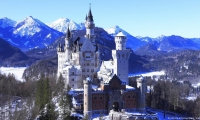
Itinerary for Any vehicle
Itinerary for: Germany
Distance to travel: 416 km
Published by: Toni Martins
Rota das Praias do Algarve
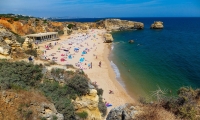
Itinerary for Any vehicle
Itinerary for: Portugal
Distance to travel: 200km
Published by: Antonio Martins
O que visitar, onde e quando visitar a Ilha do Faial
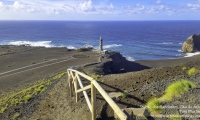
Itinerary for: Portugal
Published by: Toni Martins
Roteiro das vilas Medievais da Bretanha
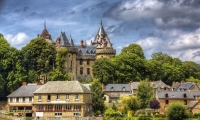
Itinerary for Any vehicle
Itinerary for: France
Distance to travel: 729 km
Published by: Toni Martins
Roteiro do Paraguai e Bolívia incluindo a Rota da Morte
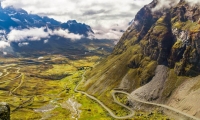
Itinerary for 4x4
Itinerary for: Paraguay
Distance to travel: 2667 km
Published by: Toni Martins
Visitando as ruinas de Pompeia e as ruinas de Herculano

Itinerary for: Italy
Published by: Toni Martins
Visitando Florença / Firenze, Toscana
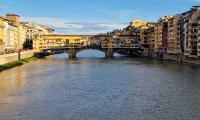
Itinerary for: Italy
Published by: Toni Martins
Escapadinha para visitar Castelo de Vide e Marvão
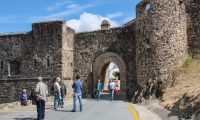
Itinerary for: Portugal
Published by: Toni Martins
Roteiro dos Mais Belos Lagos de Itália
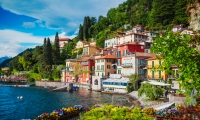
Itinerary for Any vehicle
Itinerary for: Italy
Distance to travel: 1305 km
Published by: Toni Martins
Da Foz à Nascente do Rio Tejo
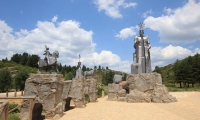
Itinerary for Any vehicle
Itinerary for: Portugal
Distance to travel: 999 km
Published by: Antonio Martins
Visitando Matera, Alberobello e Polignano a Mare
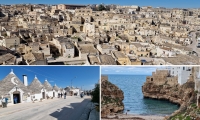
Itinerary for: Italy
Published by: Toni Martins
Roteiro das praias e vilas históricas da região de Porto Seguro
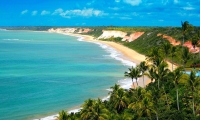
Itinerary for: Brazil
Distance to travel: 155 km
Published by: Toni Martins
Rota das Aldeias, Vilas e Cidades históricas do centro de Portugal
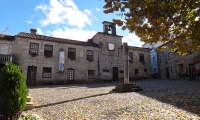
Itinerary for Any vehicle
Itinerary for: Portugal
Distance to travel: 595 km
Published by: Antonio Martins
Roteiro Nápoles, Costa Amalfitana e Capri
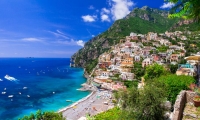
Itinerary for Any vehicle
Itinerary for: Italy
Distance to travel: 236 km
Published by: Toni Martins
O que visitar, onde e quando visitar a Ilha do Pico
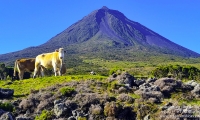
Itinerary for: Portugal
Published by: Toni Martins
Rota do Cacau
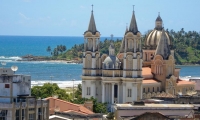
Itinerary for Any vehicle
Itinerary for: Brazil
Distance to travel: 750 km
Published by: Antonio Martins
8 países (Republica Checa, Áustria, Eslováquia, Hungria, Croácia, Eslovénia, Itália, Alemanha)
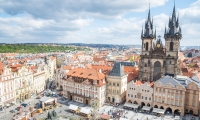
Itinerary for Any vehicle
Itinerary for: Czech Republic
Distance to travel: 3370 km
Published by: Antonio Martins
Roteiro das vilas Medievais da Toscana
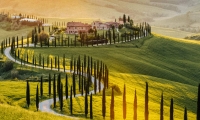
Itinerary for Any vehicle
Itinerary for: Italy
Distance to travel: 374 km
Published by: Toni Martins
Roteiro dos Alpes Franceses
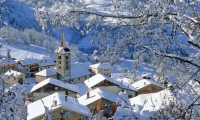
Itinerary for Any vehicle
Itinerary for: France
Distance to travel: 1041 km
Published by: Toni Martins
Visitando Pisa em autocaravana (MotorHome)
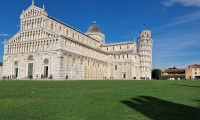
Itinerary for: Italy
Published by: Toni Martins
O que visitar, onde e quando visitar a Ilha de São Jorge nos Açores
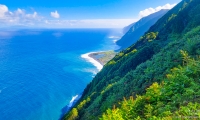
Itinerary for: Portugal
Published by: Toni Martins
Visitando as Cascate del Mulino, Termas de Saturnia
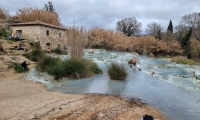
Itinerary for: Italy
Published by: Toni Martins
Visitando a Aldeia de Pitões das Júnias
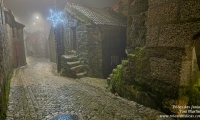
Itinerary for: Portugal
Published by: Toni Martins
Roteiro para visitar Cinque Terre em Autocaravana (MotorHome)
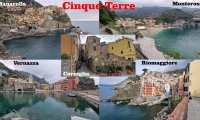
Itinerary for: Italy
Published by: Toni Martins
1ª Etapa - Viagem pela Europa em autocaravana (MotorHome)

Itinerary for: Portugal
Published by: Toni Martins
Rota de Ushuaia a Chaiten no Chile via Porvenir
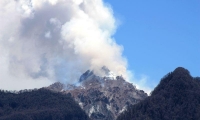
Itinerary for 4x4
Itinerary for: Argentina
Distance to travel: 3120 km
Published by: Antonio Martins
Visitando a Costa Amalfitana fazendo base em Pompeia
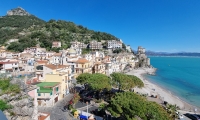
Itinerary for Moto
Itinerary for: Italy
Distance to travel: 140
Published by: Toni Martins
Rota de Buenos Aires a Ushuaia ao longo da Ruta 3

Itinerary for 4x4
Itinerary for: Argentina
Distance to travel: 3900 km
Published by: Antonio Martins
Visitando a Toscana em carro de aluguer e autocaravana
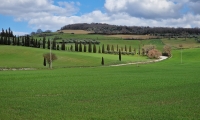
Itinerary for: Italy
Distance to travel: 200 km
Published by: Toni Martins
Do Rio de Janeiro a Santos
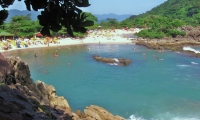
Itinerary for Any vehicle
Itinerary for: Brazil
Distance to travel: 589 km
Published by: Antonio Martins
Why to book with
The best prices
Our partnerships with the world´s largest operators offer research on the best market prices.
More options
At Rotas Turisticos you can book the hotel, buy the air ticket, book the transfer from the airport to the hotel and vice versa, book the local excursions, rent the car, take travel insurance and consult the places to visit and where to go.
Holiday Tips & Destinations
Hundreds of holiday destinations with all the options that allow you to easily choose the destination that best suits your dream vacation.
Links

